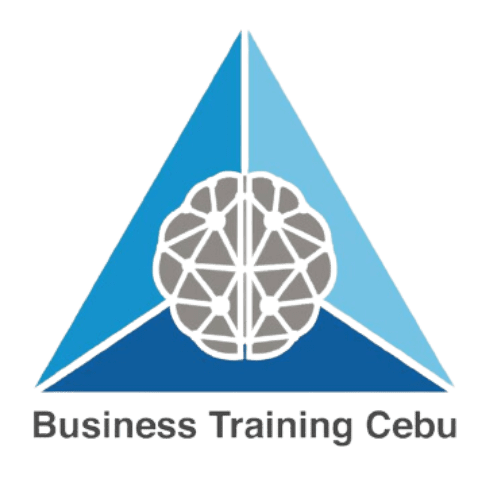Developing Problem-Solving Skills in Cebu: A Pathway to Success
Developing Problem-Solving Skills in Cebu: A Pathway to Success


Developing Problem-Solving Skills in Cebu: A Pathway to Success
In today’s fast-paced world, problem-solving skills are essential to overcoming obstacles, making informed decisions, and achieving both personal and professional success. For individuals living and working in Cebu, a growing hub of innovation and business, developing these skills is crucial. Whether you are a business professional, entrepreneur, student, or educator, the ability to analyze challenges, think critically, and implement effective solutions is key to navigating the complexities of modern life.
This article will explore the importance of problem-solving skills in Cebu, common challenges people face, key techniques to improve these skills, and practical ways to apply problem-solving strategies in everyday situations.
The Importance of Problem-Solving Skills in Cebu
Cebu has become one of the fastest-growing cities in the Philippines, with thriving sectors like tourism, business process outsourcing (BPO), manufacturing, education, and digital marketing. As the city continues to expand, the demands on professionals to tackle challenges creatively and effectively have increased. Here’s why problem-solving skills are especially important in Cebu:
- Business and Entrepreneurial Growth: Cebu is home to a growing number of small and medium enterprises (SMEs) as well as large multinational companies. For entrepreneurs and business leaders, problem-solving skills are essential for navigating market changes, overcoming operational challenges, and staying competitive. Whether it’s adapting to new technology or addressing customer needs, the ability to think on your feet is a must.
- Workplace Efficiency: In industries such as the BPO sector, professionals must handle complex tasks, manage time efficiently, and troubleshoot problems for clients around the world. Employees with strong problem-solving skills help their companies streamline operations, improve customer satisfaction, and drive innovation.
- Personal Development: Problem-solving skills are not only crucial for professional success, but also for personal growth. In Cebu’s competitive job market, employers seek individuals who can demonstrate resourcefulness and resilience in the face of challenges. The ability to solve problems also enhances personal relationships and improves decision-making in everyday life.
Common Problem-Solving Challenges in Cebu
Although the need for problem-solving skills is clear, many individuals in Cebu face challenges when it comes to developing these abilities. Some common barriers include:
- Cultural Norms: The culture of “hiya” (shame) and “pakikisama” (harmony) may sometimes prevent people from speaking up or taking initiative to solve problems, especially in group settings. This cultural emphasis on avoiding conflict can hinder the development of strong problem-solving skills.
- Over-Reliance on Hierarchical Structures: In some organizations, there is a tendency to defer decisions to superiors or follow instructions without questioning the process. This can limit opportunities for critical thinking and independent problem-solving.
- Lack of Resources: Access to training and development programs aimed at improving problem-solving skills may be limited for some individuals, especially in smaller businesses or schools. This can result in a lack of confidence and preparedness to tackle more complex problems.
- Fear of Failure: Many individuals, particularly younger professionals, may be hesitant to take risks or propose solutions due to fear of making mistakes. However, problem-solving often requires a willingness to take calculated risks and learn from failures.
Key Problem-Solving Techniques
To overcome these challenges, it is important to equip yourself with effective problem-solving techniques. Here are some key strategies that can help you develop this critical skill:
- Define the Problem Clearly: A well-defined problem is half-solved. Before jumping to solutions, make sure you fully understand the problem. Break it down into smaller components, and ask specific questions like, “What is the root cause?” and “What are the constraints or limitations?”
- Gather Relevant Information: Effective problem-solving relies on having accurate and comprehensive information. Take the time to gather all the facts, whether through research, consultations, or data analysis. Avoid assumptions and focus on evidence-based decision-making.
- Brainstorm Possible Solutions: Once you have a clear understanding of the problem, generate as many potential solutions as possible. Encourage creativity and consider unconventional approaches. Remember, not every idea will work, but exploring multiple options can often lead to the best solution.
- Analyze and Prioritize Solutions: After brainstorming, evaluate each potential solution by considering its feasibility, costs, benefits, and risks. Use techniques like a SWOT analysis (Strengths, Weaknesses, Opportunities, Threats) to assess the pros and cons of each option. Then, prioritize the most promising solutions based on their potential impact and practicality.
- Implement the Chosen Solution: Once you’ve identified the best course of action, it’s time to implement your solution. This step involves careful planning, clear communication with stakeholders, and resource allocation. Monitor progress to ensure the solution is being executed properly and make adjustments as needed.
- Evaluate the Outcome: Problem-solving doesn’t end with implementation. After the solution has been put in place, evaluate its effectiveness. Did it solve the problem? Were there any unintended consequences? What lessons can be learned for future problem-solving efforts? Continuous evaluation and learning are key to improving your problem-solving abilities over time.
Applying Problem-Solving Skills in Cebu
There are many ways to apply problem-solving techniques in Cebu, whether in a professional or personal setting. Here are some practical examples:
- Workplace Challenges: In a BPO setting, employees often deal with customer complaints or technical issues. A structured problem-solving approach can help them identify the root cause of a problem, provide timely resolutions, and improve customer satisfaction.
- Entrepreneurial Ventures: For entrepreneurs in Cebu, problem-solving skills are essential for navigating market challenges. Whether it’s adjusting a business model, finding innovative ways to cut costs, or developing new products, entrepreneurs must continuously analyze problems and find creative solutions to succeed.
- Education and Training: Students and educators in Cebu can benefit from developing critical thinking and problem-solving skills. In the classroom, encouraging students to work on problem-based learning (PBL) projects can help them become more independent thinkers and prepare them for the real world.
- Community Engagement: Problem-solving is also vital for addressing community challenges in Cebu, such as environmental sustainability, traffic congestion, or access to healthcare. By bringing together different stakeholders and encouraging collaborative problem-solving, communities can develop innovative solutions to improve the quality of life.
Enhancing Problem-Solving Skills in Cebu
To build and refine problem-solving skills, individuals in Cebu can take advantage of various opportunities for training and development:
- Professional Development Workshops: There are several organizations in Cebu that offer workshops and seminars on problem-solving, critical thinking, and decision-making. These programs provide hands-on learning experiences and can help professionals develop strategies to tackle real-world problems.
- Business Networking Events: Attending networking events in Cebu can expose individuals to different industries and problem-solving approaches. Learning from other professionals’ experiences can offer valuable insights into overcoming challenges in your own career or business.
- Educational Programs: Institutions like Cebu Success Institute and other learning centers offer courses focused on leadership and problem-solving skills. These programs are designed to equip individuals with the tools needed to thrive in a rapidly changing environment.
- Self-Study and Online Resources: For individuals who prefer a more flexible approach, online resources such as books, webinars, and e-learning platforms provide valuable lessons on critical thinking and problem-solving techniques. With self-discipline, you can continually develop these skills at your own pace.
Conclusion
Problem-solving is a critical skill that everyone in Cebu should strive to develop. Whether you are navigating challenges in your career, business, or personal life, the ability to analyze problems, think creatively, and implement effective solutions is key to success. By adopting proven problem-solving techniques, continuously seeking opportunities to improve, and applying these skills in real-world scenarios, you will not only become a more effective problem-solver but also enhance your overall quality of life and career prospects. In a growing city like Cebu, where opportunities abound, mastering problem-solving skills can set you apart and open doors to greater success.
